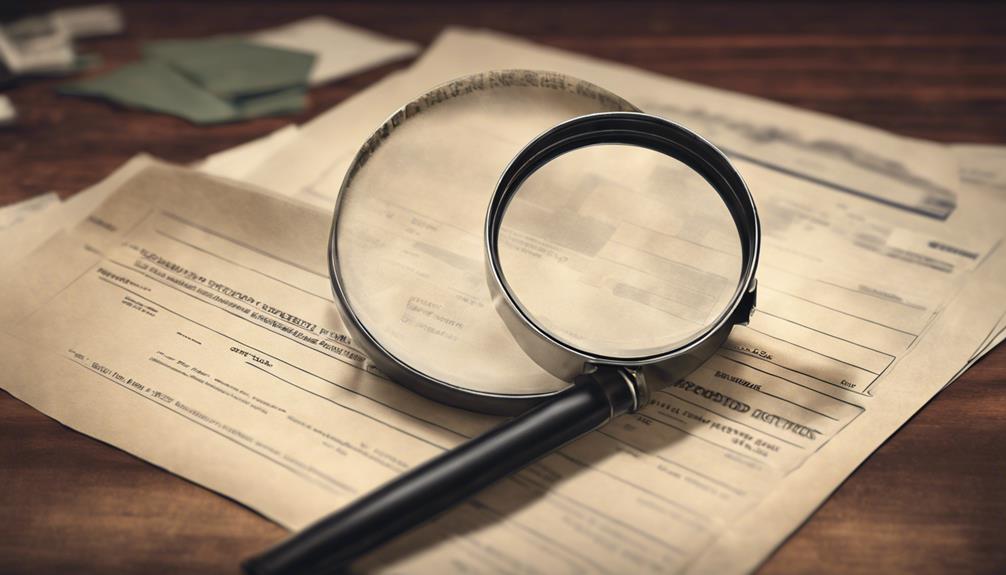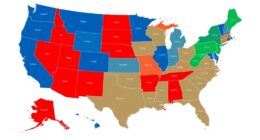Retail background checks are important for preventing theft, fraud, and other risks tied to employee turnover in the retail sector. They cover criminal records, employment verification, credit histories, and more to guarantee a safe work environment. By implementing strong screening processes, businesses can reduce the high costs of retail theft and fraud. These checks are customized to specific hiring needs, including risk reduction strategies and compliance with legal regulations. Learning more about retail background checks can provide valuable insights into protecting businesses and maintaining a secure hiring process.
Key Takeaways
- Retail background checks cover criminal records, credit history, and employment verification.
- Employee screening prevents theft and fraud, costing businesses an average of $1,550 per incident.
- High turnover rates in retail emphasize the importance of robust screening processes.
- Compliance with FCRA rules and legal regulations protects companies from liabilities.
- Background checks aid in fair hiring practices, reducing risks and ensuring security in the retail industry.
Retail Industry Statistics and Challenges

The retail industry faces significant challenges, as evidenced by a staggering turnover rate of 68% for hourly positions in 2021, which surged to nearly 76% in 2022. High attrition rates in retail, affecting both regular workers and managers, have reached concerning levels.
Nearly half of regular retail workers and a significant 63% of managers are contemplating leaving the industry, showcasing the pressing need for improved employee retention strategies. To address these challenges, companies are exploring new approaches such as expanding hiring criteria and embracing second chance initiatives to provide opportunities to a broader pool of candidates.
Ensuring a steady hiring pace is essential for retail businesses grappling with high turnover rates, as vacancies left unfilled can further strain operations and impact overall performance. By understanding the background statistics and challenges in the retail sector, companies can better strategize and implement effective solutions to enhance employee retention and combat the industry's high turnover rates.
Retail Employee Screening and Background Checks
Effective retail employee screening and background checks play an important role in safeguarding businesses against theft and fraud in the industry.
Retail background checks typically cover a range of checks, including county criminal records, employment verification, education verification, credit history, and reference checks.
These checks are essential for preventing employee theft and ensuring fraud prevention within retail establishments.
With retail theft costing businesses significantly more than shoplifting, averaging around $1,550 per dishonest employee, thorough background checks are crucial for mitigating such risks.
The high turnover rate in the retail industry, reaching nearly 76% in 2022 for hourly positions, further underscores the importance of robust employee screening processes.
Retail Theft and Fraud Prevention

Retail background checks are pivotal in identifying potential risks and addressing vulnerabilities related to employee theft and fraud in the retail sector. Employee theft costs businesses more than shoplifting, with an average loss of around $1,550 per incident.
Nearly 57% of fraud cases in 2020 involved company employees, highlighting the importance of preventing internal theft. Implementing security solutions to prevent on-the-job theft is vital for retail businesses. Fraud can manifest as time theft through manipulation of time records by employees. Employers must reduce the risk of fraud to protect their businesses from financial losses.
Specific Screening Practices
Employers can enhance risk reduction strategies by implementing specific screening practices during the hiring process in the retail sector. These practices often include criminal records checks, which provide valuable insights into an individual's past involvement in felony and misdemeanor cases.
Additionally, employment background screenings can uncover civil judgments and adverse credit that may indicate potential risks for the employer. To ensure compliance with applicable state laws, it's essential for retail businesses to conduct thorough background checks tailored to the specific requirements of hiring for positions within their organization.
When conducting a retail background check, employers should pay close attention to the types of information included in the background check report. This may involve alias screening to verify real names and uncover known aliases, criminal record checks that include county court searches in metro regions, and verifications like education and employment verifications.
Pre-employment drug testing can also be a valuable practice to reduce risks associated with intoxication and substance abuse habits, while preventing sexual misconduct requires checking state sex offender registries and implementing strong business policies.
Compliance and Legal Concerns

To guarantee a legally sound hiring process, businesses in the retail sector must prioritize compliance with background check regulations. Adherence to legal guidelines is essential to avoid potential legal concerns, fines, and reputational damage.
In the retail industry, where background checks are common practice, understanding and following the Fair Credit Reporting Act (FCRA) rules is necessary. Some key points to take into account regarding compliance and legal concerns in background checks include:
- Employers must adhere to FCRA rules, such as providing a standalone disclosure and obtaining consent for background checks.
- Compliance with background check regulations helps protect businesses from legal threats and negative publicity.
- Adverse action procedures, like providing reports and letters to applicants, must be executed according to legal requirements.
- Background checks ensure fair hiring practices and safeguard companies from potential liabilities.
- Upholding legal guidelines for background checks is essential for maintaining a compliant and legally sound hiring process.
Frequently Asked Questions
What Is a Red Flag on a Background Check?
A red flag on a background check can be a recent criminal conviction related to theft or fraud, unexplained gaps in employment history, inconsistencies in education or employment verification, a poor credit history, or previous workplace misconduct.
What Is Usually Checked in a Background Check?
A thorough background check typically includes criminal history, employment and education verification, credit history, and reference checks. These checks help employers identify red flags and promote workplace safety, vital for making informed hiring decisions.
How Should I Prepare for a Background Check?
To prepare for a background check, individuals should gather identification info, employment history, and be ready for criminal record searches. They may undergo credit checks, drug tests, and should be aware of any past issues.
What Matters Most in a Background Check?
In a background check, what matters most is accuracy and thoroughness. Identity verification, criminal history checks, employment history validation, credit checks, and drug testing are key components that provide valuable insights into a candidate's background and suitability for a role.
Are the Same Background Check Processes Used for Retail Employees and Teachers?
When it comes to background checks for teachers: information you need varies from what is used for retail employees. For teachers, the process typically involves a thorough review of criminal records, educational history, and past employment, as well as checking for any misconduct allegations. Retail employees may undergo a less extensive screening process.
Conclusion
To sum up, retail background checks are essential for protecting businesses from potential risks. By staying up-to-date on industry standards and compliance regulations, retailers can guarantee a safe and secure work environment.
Remember, in today's fast-paced world, it's wiser to be cautious than regretful when it comes to hiring new employees. So, don't lower your defenses and always conduct thorough background checks to safeguard your business.









